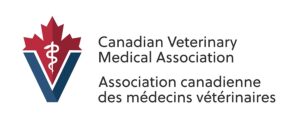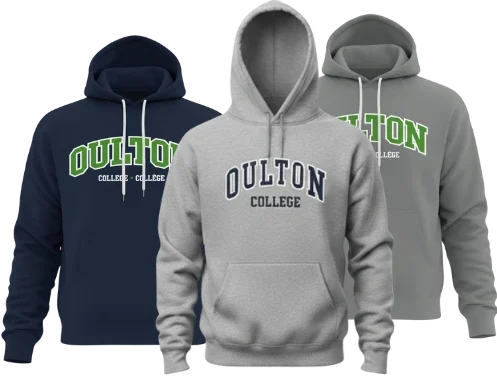Veterinary Technician Program
Start Date: February & September
Duration: 2 Years
Credential: Diploma
Start Date: February & September
Duration: 2 Years
Credential: Diploma
Program Overview
Enroll in our 2-year Veterinary Technician Program to master cutting-edge skills and gain hands-on experience.
As a vital member of the veterinary team, you’ll gain essential skills in ensuring the health care of companion animals and more. In addition to clinic and surgery skills development, you will also learn how to manage the day-to-day operations of a veterinary clinic. Veterinary Technicians provide both customer service and patient care as part of their everyday duties, and you’ll learn to deliver animal health knowledge and provide comprehensive care.
Our program is the only Accredited Program in New Brunswick, following standards set by the Canadian Veterinary Medical Association. Graduates are eligible to write the VTNE credentialing exam. This enables Veterinary Technician students to apply for licenses anywhere in North America. You will also participate in a 6-week practicum placement in a veterinary clinic, gaining real-world experience. Discover relevant Vet Tech career insights in our latest Paws & Procedures blog post!
Ready to make a difference in veterinary care? Enroll today and take the first step towards a rewarding career. Don’t forget, our programs high employment rates and reputation for excellence will give you a strong start in the field. Your future in veterinary medicine starts here!
Turn your passion for animals into a successful career!
*Cost breakdown: Book a meeting with one of our Admissions Advisors for a detailed breakdown of costs and tuition for our Veterinary Technician program. They can provide tailored information and help you understand all financial aspects. Schedule your appointment today to get all the details you need!
- The Oulton College Veterinary Technician program provides you with the experience and knowledge to be successful in the rapidly growing field of Veterinary Medicine within 2-years.
- Work in our on-site licensed veterinary clinic and learn how to become an important part of the veterinary healthcare team.
- You gain hands-on experience in real surgeries and deepen your medical knowledge.
- Your education will be challenging and dynamic, providing instruction in many areas of veterinary medicine with both large and small animals.
- Our program provides wonderful networking opportunities and exposure to guest speakers from all areas of the profession.
- The only Accredited Program in New Brunswick, adhering to the standards set by the Canadian Veterinary Medical Association.


- You will receive individual attention from qualified instructors who are licensed veterinarians and registered veterinary technicians.
- Our challenging and rewarding program is accredited by the Canadian Veterinary Medical Association and the Canadian Council for Animal Care.
- Oulton’s veterinary technician students work alongside instructors, in our on-site licensed veterinary clinic and learn how to become an important part of the veterinary healthcare team.
- You will share your time between the classroom, laboratory, our on-site Veterinary Clinic, and numerous field trips to farms and animal shelters to practice your skills. The program concludes with a practicum placement in the veterinary industry.
- You will get lots of hands-on experience with all types of animals to build your confidence and expertise.
- The highest quality of education has created relationships and a reputation of excellence – this results in our high employment rates year after year!


Veterinary Technician Program:
- Anatomy & Physiology
- Small and Large Animal Nursing
- Radiology
- Dentistry
- Emergency and Critical Care
- Exotics
- Common Diseases
- Calculations
- Pharmacology
- Nutrition
- Surgical Nursing
- Practice Management
- Animal Behavior
- Laboratory Procedures
Here are some interesting blogs for you:
Admission Requirements
- Grade 12 Diploma, Adult Diploma or GED.
- Grade 11 or 12 Biology* with a minimum average of 65%.
- Grade 11 or 12 English* with a minimum average of 65%.
- Grade 11 or 12 Math* with a minimum average of 65%.
- Meeting with an Admissions Advisor.
*Courses marked with an asterisk (*) must be completed at the academic level.
International students whose first language is not English must submit proof of English language proficiency, unless they have completed a minimum of three years of study at a school where English is the language of instruction. Please see the international application process here.
Career Opportunities
Veterinary Technicians are an important part of the animal healthcare team. We take pride in producing top veterinary technicians, equipped with comprehensive training and hands-on experience. Explore the diverse and rewarding career paths available to graduates of our Veterinary Technician program. Here are just a few opportunities you can pursue:
- Private Veterinary Hospitals
- Corporate Veterinary Hospitals
- Veterinary Practice Management
- Food Safety Inspection
- Animal Shelters
- Animal Boarding Facilities
- Diagnostic Laboratories
- Zoos
- Wildlife Reserves
- Veterinary Supply Sales
Course Descriptions
This course provides a comparative review of the gross and microscopic anatomy as well as basic physiology of selected species. Topics will include organs, organ systems, and organ system functions within the animal body. Upon completion of this course students should be able to identify palpable and individual skeletal components, the major muscles/muscle groups, arteries and veins and the anatomy of the heart. Students will also learn the fundamentals of medical terminology.
The veterinary technician student will have knowledge of the principles of microscopy and parasitology. The student will also learn and be able to identify the various internal and external parasites encountered in veterinary medicine. Includes 3.5 hours every week of practical laboratory exercises.
This course will deal with client relations, scheduling appointments, telephone techniques, client education, completing medical records and effective interpersonal communication skills. There will be a strong focus on veterinary medical terminology. The student will also receive an introduction to Veterinary Practice Management Software. There will be discussion on euthanasia, grief, and the human-animal bond. Upon completion of this course, students will be effective veterinary receptionists and demonstrate excellent customer service techniques.
Veterinary technician students will learn how to problem solve, to understand drug labels and calculate drug dosages, to calculate IV fluid rates, and become familiar with various units of measure and conversion between units.
Basic animal behaviors such as how sick and healthy animals communicate as well as inappropriate behaviors are covered in this course. Housetraining and interacting with animals in a clinic situation will be emphasized. Learn to understand normal behavior of domestic animals and recognize signs of pain, aggression, or fear as encountered in veterinary practices and interacting with these animals appropriately.
After learning the basic principles of nutrition, veterinary technician students will then be shown how to apply this knowledge when reading labels or advising clients on what diets are available for different life stages and disease processes. Topics discussed will include nutritional goals, nutrients vs. ingredients, pet food production, forage recognition, equine diets, special diets, and client counselling.
This course includes field trips to the local PAW facility (formerly known as the SPCA) to help facilitate the practical skills acquired within the animal nursing courses. While here the student gains hands-on experience with basic husbandry, restraint, medication administration, as well as wound care.
This course will provide the veterinary technician student with the knowledge and practical skills necessary to develop various small animal nursing skills. The student will learn how to restrain and safely examine animals as well as administer medications, collect diagnostic samples for interpretation, and perform minor procedures including pedicure, ear cleanings, and intravenous catheterizations.
This course is a continuation of the material the veterinary technician student learned in Anatomy and Physiology I. The student will continue to learn of gross anatomy, microscopic anatomy and physiology of selected species.
The veterinary technician student will learn the basic components of blood. Upon completion of the program, the graduate will be able to complete routine hematology testing. The student will be able to recognize normal versus abnormal test results and be able to identify when further testing is required. Includes 3.5 hours every week of practical laboratory exercises
In this course the student will learn how to prepare instruments as well as surgical gowns and drapes for the surgical suite. They will also learn how to prep a patient for surgery as well as assist the doctor and provide anesthesia and anesthesia monitoring. Students will develop skills in the function and the use of anesthetic equipment, care, induction, and maintenance of anesthetic patients, and troubleshooting.
This course serves as an introduction to surgical instrumentation, preparation of surgical packs and sterilization techniques. Veterinary technician students will learn pre-anesthetic and pre-surgical patient preparation, sterile techniques including standard operating room conduct, opening surgical packs, as well as aseptically gowning and gloving. This is a hands-on practical course to coincide with Surgical Nursing.
These courses are a continuation of the material learned in Small Animal Nursing I. The student will learn the skills necessary to provide quality nursing care to small animals as well as preventative medicine. Material covered will include fluid therapy as well as how to administer it, wound classification, wound care and management, proper bandaging techniques as well as the basics in alternative medicine. This course has a practical component where skills are learned and assessed in combination with other courses’ practical skills and assessments
Upon completion of the course, the student will be able to describe routine hematology, chemistry and serology testing. The student will be able to recognize normal versus abnormal test results and be able to identify when further testing is required. The student will also be familiar with the various automated analyzers used in veterinary medicine to evaluate hematology and clinical chemistries. The care and use of various laboratory instruments will also be covered. Includes 3.5 hours every week of practical laboratory exercises.
Detailed dental anatomy, charting of the mouth, understanding the cause and importance of periodontal disease, as well as treatment options and home care are all discussed. Also, during the clinical exercise (VT 421 and 521), students will perform real dental cleanings on models and anesthetized animals.
Introduces veterinary technician students to the terminology, routes of administration, how drugs work and travel through the body.
Veterinary technician students will be introduced to the common surgical procedures performed in the veterinary hospital. Reasons for the procedures as well as the technician’s role before, during and after each procedure will be explained.
Veterinary technician students participate in mock surgeries acting as Anesthetist, Prep nurse, and Surgical assistant. These are surgeries being done on site in our NBVMA accredited clinic using models, thus allowing first year students to become accustomed to our clinic before entering their second year.
This course will educate veterinary technician students about the various emergencies that may be encountered in clinics and the technician’s role in these situations. Anesthetic emergencies, toxicological emergencies and cardiac arrest are just some of the emergencies that will be covered. We will also cover dealing with the critically ill patient, anesthesia, medications and nutrition.
The veterinary technician student will learn the principles and procedures behind basic cytology and urinalysis. This includes how to perform tests, why the tests are being run, what information can be gained from the tests and how to collect, prepare and preserve samples. Includes 3.5 hours every week of practical laboratory exercises.
This course will follow a system-by-system approach through the body, discussing common systemic diseases of small animals, horses, and ruminants. Each section will include a discussion of the disease, pathophysiology, diagnostic tests available, and treatment options. Special emphasis will be placed on the technician’s role in treatment and client education.
The veterinary technician student will learn about the principles of animal research and the regulatory bodies that govern research. The student will learn receiving, testing and quarantine procedures. As well, the student will learn how to perform physical examinations, basic care procedures, administer medications, and collect samples for testing on species such as rabbits, ferrets, guinea pigs, mice, rats, gerbils, hamsters, avian species, non- human primates, reptiles and wildlife.
In this course veterinary technician students will be able to demonstrate radiology safety measures, proper care and maintenance of radiographic equipment, patient positioning, and processing of radiographs. Students will be taught how to recognize common technical errors on processed radiographs and how to correct them. The student will gain experience and develop skills with both stationary small animal and mobile large animal x-ray equipment.
This course will examine common medications used in veterinary medicine, prescription dispensing, handling, storing and documentation of controlled substances, routes and methods of drug administration. Veterinary technician students will develop a working knowledge of veterinary medications, terminology, proper handling, administration and possible side effects of drugs and prescription dispensing protocol.
Through a combination of lectures and field trips, veterinary technician students will learn how to safely handle and work around cattle, horses and sheep. As well, methods for blood collection, parenteral injections and administering oral medications will be taught.
In this course, veterinary technician students will learn the basics of Mycology, Microbiology and Virology, as well as how to collect, store and culture various micro-organisms.
Veterinary technician students participate in real surgeries in our onsite veterinary clinic, allowing students to practice all their clinical skills before entering their practicum. This includes roles as an anesthetist, surgical assistant, and prep nurse.
The 6-week on the job training opportunity helps our students gain valuable hands-on experience directly in the field of education. To graduate from the Veterinary Technician Program, you must complete this practicum session.
Frequently Asked Questions
What does Veterinary Technician Do?
A Veterinary Technician (often called a Vet Tech) is a trained professional who works alongside licensed veterinarians to provide medical care to animals.
Our Vet Tech diploma program in Moncton, is designed to prepare students for careers in animal healthcare. The curriculum blends classroom instruction, hands-on lab training, and real-world clinical experience in veterinary settings.
How long does the Vet Tech program take to complete?
This is an accelerated full-time, two-year diploma program. Students gain valuable practical skills through on-campus labs and clinical placements in veterinary clinics and animal hospitals throughout New Brunswick.
What career opportunities are available for Veterinary Technicians in New Brunswick?
Graduates of Oulton College’s Veterinary Tech program are in high demand across New Brunswick. Career paths include roles in veterinary clinics, animal hospitals, shelters, research facilities, and specialty practices. The program’s strong industry partnerships help students transition smoothly into the workforce.
Is the Veterinary Technician program accredited?
Yes, the Vet Tech program is fully accredited by the Canadian Veterinary Medical Association (CVMA). This accreditation ensures national standards are met and allows graduates to sit for the Veterinary Technician National Examination (VTNE).
What kind of clinical experience will I get in the Veterinary Technician program?
Students participate in extensive hands-on training, including labs and clinical rotations with both small and large animals. Clinical skills include surgical assistance, radiology, anesthesia, emergency care, and laboratory procedures.
What are the admission requirements for the Veterinary Technician program?
Applicants must hold a high school diploma with strong academic performance in English, Math, and Science. Meeting with an Admissions Advisor is recommended.
Can international students apply to the Vet Tech program?
Yes. International students are welcome to apply. They must meet English language proficiency requirements unless they’ve completed at least three years of education in an English-language institution.
What happens after graduation?
Veterinary Technician graduates are eligible to write the VTNE, and apply for registration as Veterinary Technicians in New Brunswick and across Canada. The program also provides a strong foundation for those interested in pursuing further specialization in veterinary medicine or animal care.
Please Note: Content is subject to change by administration as required to meet program and profession standards.



